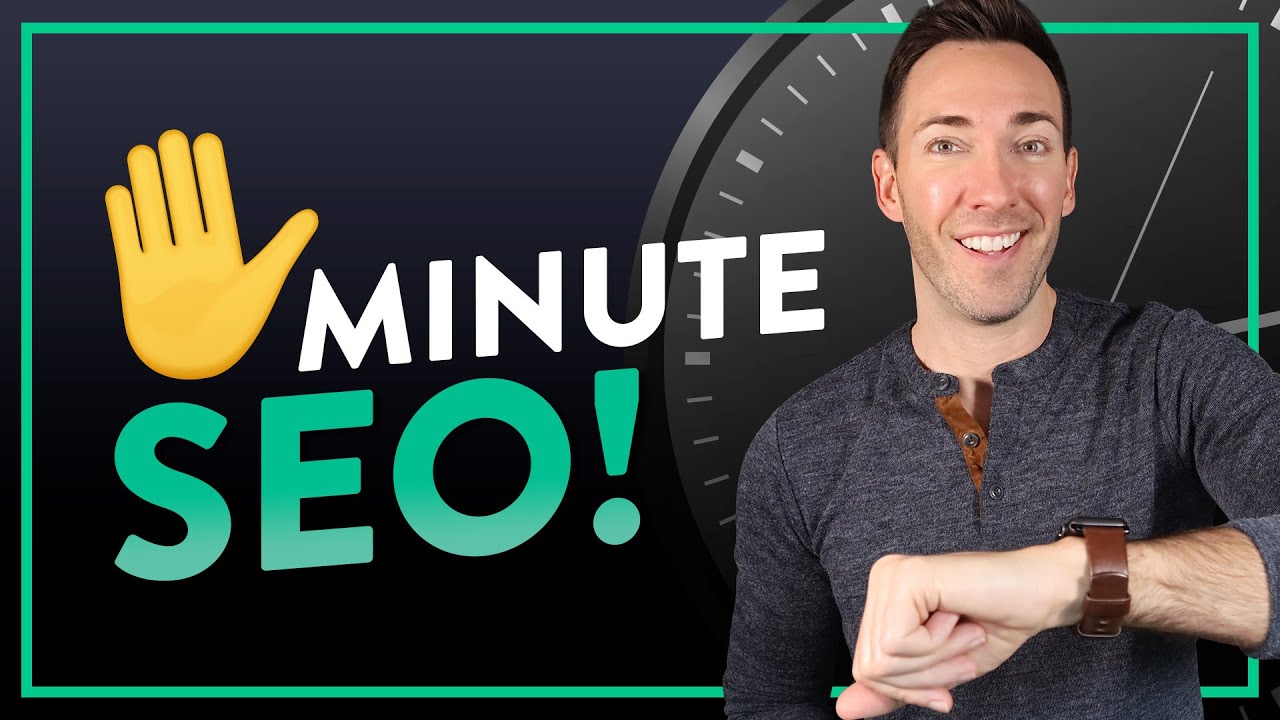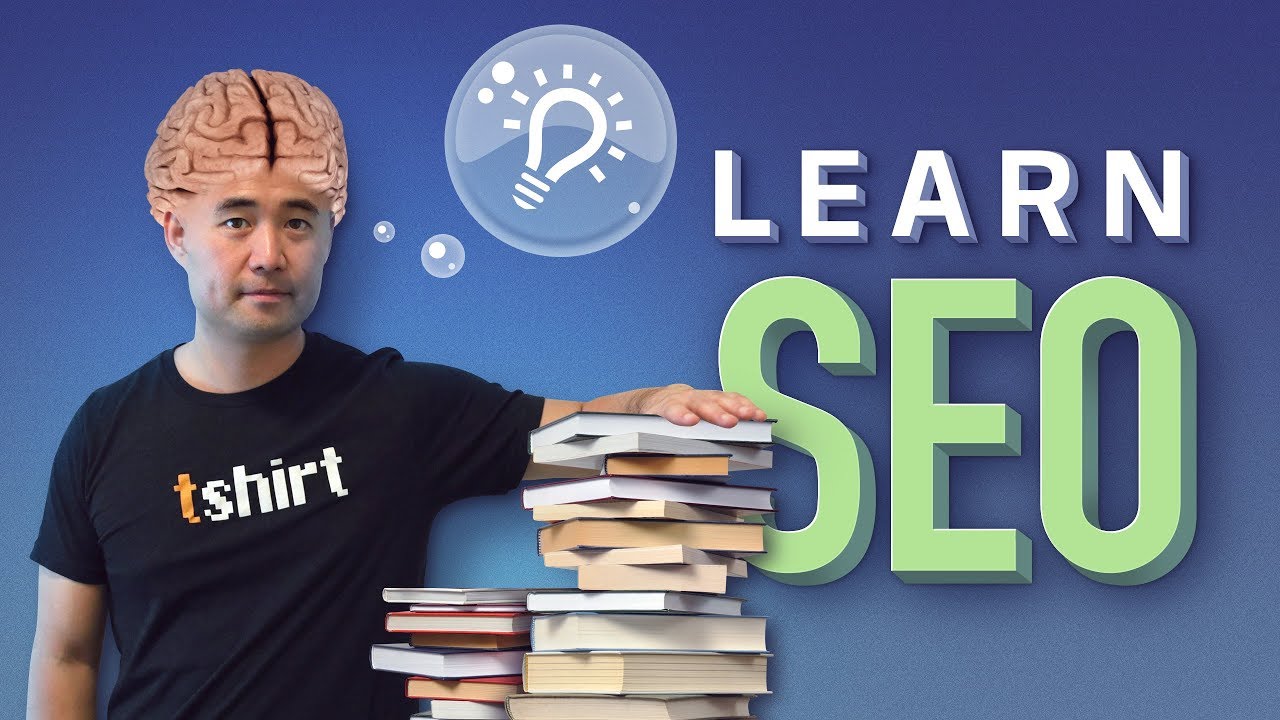How much does it cost to do SEO? The truth is you don’t need any money. In order to get traffic through SEO, all you need is a bit of sweat equity, invest the time and effort in your business so you can start reaping rewards. Do you want to learn how? Today I’m going to break down how to Win on SEO Without Spending Money, The Penniless Marketer Full Strategy.
RESOURCES & LINKS:
____________________________________________
Ubersuggest – https://neilpatel.com/ubersuggest/
Facebook’s Audience Insights – https://www.facebook.com/business/insights/tools/audience-insights
Canva – https://www.canva.com/
Cloudflare – https://www.cloudflare.com/
Smush – https://wordpress.org/plugins/wp-smushit/
____________________________________________
Step number one, develop a strategy.
So what do you do? Well, yeah, you can go after the competitive keywords and you can include them in your content, but as I mentioned, that shouldn’t be your core focus because you’re not going to for rank them anytime soon.
I also want you to look for keywords that have higher volume because if a keyword has a higher volume, that means you can also potentially get more sales.
And then I want you to look for a keyword that has an SEO difficulty score of under 40 because that means that keyword is going to be easier for you to rank for in the short run.
The second step you need to take is to understand the search intent behind your target keywords.
Generally speaking, when someone is searching for any given keyword, their search falls into one of the following categories.
Navigational. People use this to type the keyword when they’re looking for specific websites they already know.
Transactional. People use transactional keywords when they want to buy something.
Informational. This one people are seeking information for any given topic.
Typically when you’re going after and you’re trying to get sales, you want to try to go after informational keywords or transactional keywords. Those two keywords can generate sales. Transactional will generate them faster. Informational ones won’t be as quick.
The third step is to create a content calendar.
If I were you and I was starting out to push out content, I would start out with something simple like once a week and then go from there. Don’t overwhelm yourself. You can always increase your quantity.
The fourth step before writing each content piece, do thorough research and curation.
How long is their content? How do you make yours more comprehensive? What subtopics are they including in their content? What keywords are constantly appearing? Any videos included in their content? What kind of images are they using to tell their story? What type of data sources are they using? You want to jot all of this down and then start creating your outline from all the rich media that you should include from all the topics that you should cover to all the keywords that you need to cover to all the sources that you’re going to want to use for your research, all the data, stats, and academic papers that you also want to link out to.
For the fifth step, enrich your content with other media types.
I love including videos in my content, infographics, charts, data visualizations. If you don’t have money to pay for a designer, that’s okay.
The sixth step, work on speeding up your website.
Make sure you’re using a CDN like Cloudflare. Heck, you can even do it for free. When you’re on WordPress, you also want to use AMP pages. These AMP pages are great for mobile devices it allows your page to load up super fast. Are you compressing your images? I use a plugin called Smush which works out really well with WordPress to compress images.
The seventh step, use the free SEO tools out there to keep track of your progress and continually improve your website.
From Google Search Console telling you, hey, what should you do to get more traffic? It’ll tell you all the errors that you need to fix. It even tells you webpage load time now and which pages are loading slowly on mobile and desktop so you know what to focus on next.
Step eight, be consistent.
Always stick to your editorial calendar. Publish content around your core strategy. Don’t get caught up in the shiny object syndrome. The strategy is really simple. Just follow everything that I’ve broken down here and you can do well.
Just because something is simple, it doesn’t mean it’s going to be easy. You have to be disciplined at analyzing your work and doubling down on what’s working, right? And I broke this all down so you can do it for free.
► If you need help growing your business check out my ad agency Neil Patel Digital @ https://neilpateldigital.com/
►Subscribe: https://goo.gl/ScRTwc to learn more secret SEO tips.
►Find me on Facebook: https://www.facebook.com/neilkpatel/
►On Instagram: https://instagram.com/neilpatel/
#SEO #NeilPatel #DigitalMarketing



 Want Wes’ 1-on-1 help with your website, or with your digital marketing? Schedule a 60 minute kickstart meeting here: https://wesmcdowell.com/kickstart/
Want Wes’ 1-on-1 help with your website, or with your digital marketing? Schedule a 60 minute kickstart meeting here: https://wesmcdowell.com/kickstart/ Register for the FREE On-demand video masterclass training, “Create & Launch Your Own Profitable Client Generating Website!” Just go to: https://wesmcdowell.com/training
Register for the FREE On-demand video masterclass training, “Create & Launch Your Own Profitable Client Generating Website!” Just go to: https://wesmcdowell.com/training Listen to Wes’ ‘The Profitable Website’ Podcast: https://wesmcdowell.com/subscribe/
Listen to Wes’ ‘The Profitable Website’ Podcast: https://wesmcdowell.com/subscribe/


 https://youtu.be/olKa_UzmDSE
https://youtu.be/olKa_UzmDSE 

